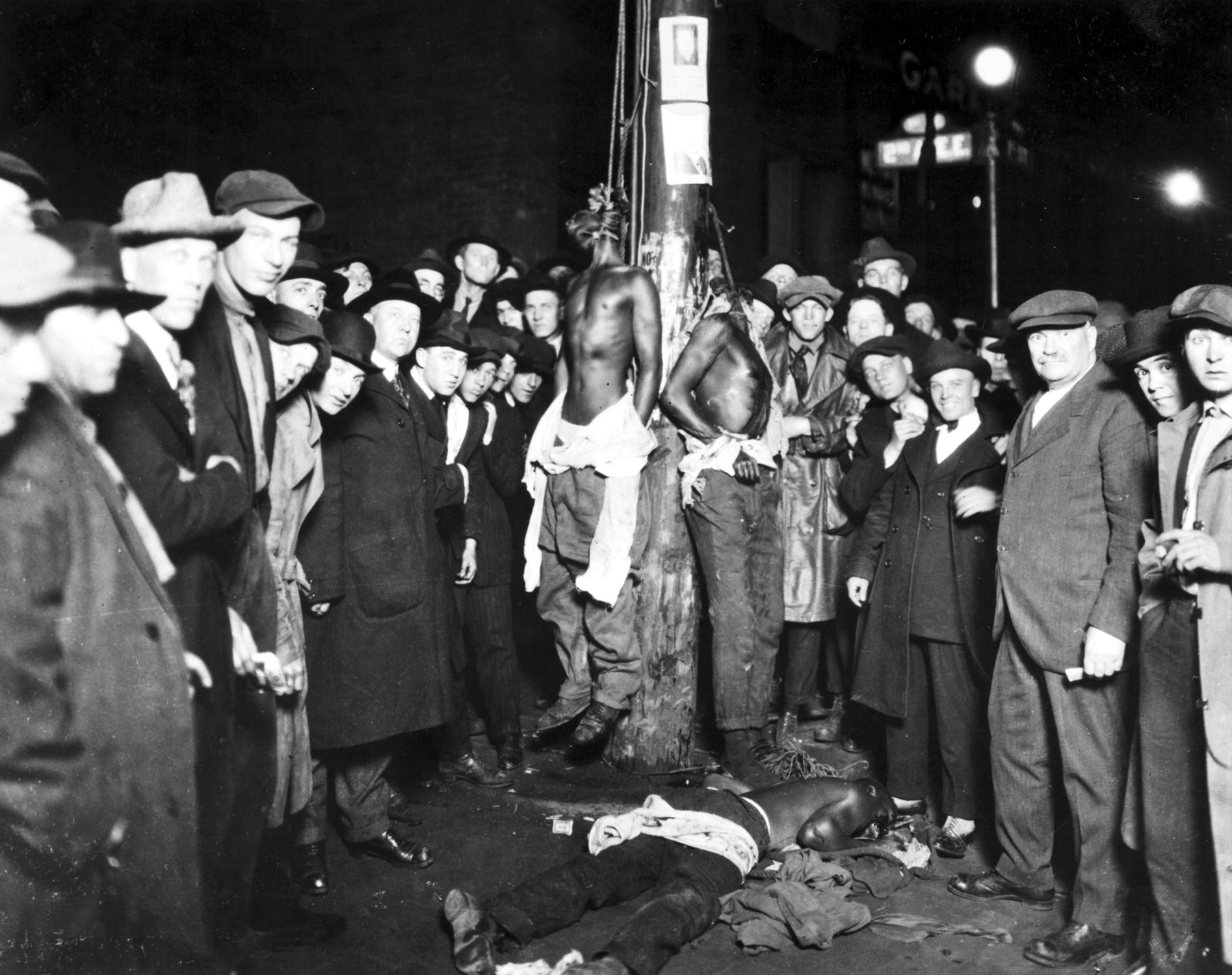Gori the Grey
The Poster
- Joined
- Jan 5, 2009
- Messages
- 13,552
Well that would only mean that generally policing and terrorism will be an indistinguishable mush in this case.
In before Tim

Well that would only mean that generally policing and terrorism will be an indistinguishable mush in this case.

Sign me up with the camp that totes agrees it's always been terrorism. Only thing that's stuck in my craw on this one is some idiot that was on NPR on Friday spouting that lynching of blacks was indeed terrorism but since whites were lynched to "make whites feel safe" that wasn't terrorism. Which is idiotic.
Murderous violence directed at members of some identifiable population by representatives of a group zealously convinced of its own righteousness, which violence is calculated, by aspects of the form that it takes (surprising, out-of-the-blue; spectacular), to intimidate other members of that identifiable population.
The ANC crtainly had terrorism in it's history because it killed mainly blacks who didn't follow their ideology of the ANC by necklacing them. Google that term to see what a marvellous thing. I don't know much about the Black Panthers.Do the Black Panthers and ANC qualify as terrorist organizations?
Why were they lynching so many whites? They lynched over 1000 it was almost half the number of blacks they lynched. Seems counter productive.
@borachio, a slave that can be freed after 7 years isn't much of a slave. Clearly you don't have a clue about what the Bible teaches. The fact is that Wilberforce saw that the Bible doesn't teach man has control over other men to enslave them. You should ask Plotinus in his thread about that since you are ignorant of the issue.
@borachio, a slave that can be freed after 7 years isn't much of a slave. Clearly you don't have a clue about what the Bible teaches. The fact is that Wilberforce saw that the Bible doesn't teach man has control over other men to enslave them. You should ask Plotinus in his thread about that since you are ignorant of the issue.
Of course, before long someone is sure to point out that "slaves" in the Old Testament often refers to indentured* labourers (selling themselves into slavery usually because of debt), who were supposed to be released from bondage after six or seven years, or at the Jubilee if this happened earlier.
This only applied to Israelites, though.
Non-Israelite slaves could be enslaved indefinitely and were to be treated as inheritable property.
Leviticus 25:44
Both thy bondmen, and thy bondmaids, which thou shalt have, shall be of the heathen that are round about you; of them shall ye buy bondmen and bondmaids. 45Moreover of the children of the strangers that do sojourn among you, of them shall ye buy, and of their families that are with you, which they begat in your land: and they shall be your possession.
http://en.wikipedia.org/wiki/Christian_views_on_slavery#cite_note-39
But, hey! let's see some fundamentalist bible literalist perform their usual mental gymnastics to either persuade themselves that slavery in the OT didn't mean slavery, or that slavery isn't as bad as some people would have you believe.
*As if indentured servants weren't slaves! http://en.wikipedia.org/wiki/Indentured_servant
During the late 17th and early 18th centuries poor children from England and France were kidnapped and sold into indentured labor in the Caribbean for a minimum of five years, but most times their contracts were bought and sold repeatedly and some laborers never attained their freedom
Care to volunteer for 7 years of servitude?@borachio, a slave that can be freed after 7 years isn't much of a slave.
Clearly you don't have a clue about what the Bible teaches. The fact is that Wilberforce saw that the Bible doesn't teach man has control over other men to enslave them. You should ask Plotinus in his thread about that since you are ignorant of the issue.
It was to send the message that others whites need to bow to whitey thus an extension of the terrorism committed against blacks in the named of trumped up vigilantism.
Naturally, that brings us to the question what terrorism even is. I think regarding its use it mostly is a political buzz word. However, I am hopeful we can still salvage a useful definition.
Here is mine: Using partisan tactics against civilian targets in order to advance a political agenda.
Going by that my answer is: it depends. An angry mob is not a partisan tactic. It is an angry mob.
Planned covert attacks however may very well qualify.
Naturally, that brings us to the question what terrorism even is. I think regarding its use it mostly is a political buzz word. However, I am hopeful we can still salvage a useful definition.
Here is mine: Using partisan tactics against civilian targets in order to advance a political agenda.
partisan/ˈpɑːtɪzan,ˌpɑːtɪˈzan/noun
1. a strong supporter of a party, cause, or person.
2. a member of an armed group formed to fight secretly against an occupying force, in particular one operating in German-occupied Yugoslavia, Italy, and parts of eastern Europe in the Second World War.
- adjective
prejudiced in favour of a particular cause.
terrorism/ˈtɛrərɪzəm/noun
the unofficial or unauthorized use of violence and intimidation in the pursuit of political aims.

Most lynchings from the late 19th through the early 20th century were of African Americans in the South.[3][20] Other victims included white immigrants, and, in the Southwest, Latinos. Of the 468 lynching victims in Texas between 1885 and 1942, 339 were black, 77 white, 53 Hispanic, and 1 Indian.[21]
The murders reflected the tensions of labor and social changes, as the whites imposed Jim Crow rules, legal segregation and white supremacy. The lynchings were also an indicator of long economic stress due to falling cotton prices through much of the 19th century, as well as financial depression in the 1890s. In the Mississippi bottomlands, for instance, lynchings rose when crops and accounts were supposed to be settled.
